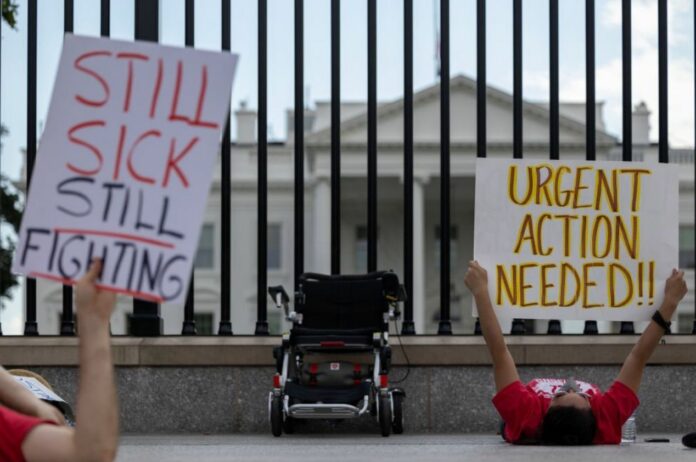While investigating the loss of smell, “one of the first symptoms that has typically been associated with COVID-19 infection,” this study also sheds light on the potential underlying causes of other long-term COVID-19 symptoms such as fatigue, shortness of breath, and brain fog that may be triggered by similar biological mechanisms.
A team of scientists lead by Duke Health reveal that the failure of some patients to regain their sense of smell following COVID-19 is related to a persistent immunological attack on olfactory nerve cells and a corresponding loss in the quantity of those cells.
The study, which was published today in the journal Science Translational Medicine, sheds light on a perplexing issue that has affected millions of people whose sense of smell has not completely recovered after the COVID-19 outbreak.
While this study focused on olfactory dysfunction, the findings have implications for other long-term COVID-19 symptoms that may be produced by the same biological pathways (such as general tiredness, shortness of breath, and brain fog).
“One of the first symptoms that has typically been associated with COVID-19 infection is loss of smell,” says senior author Bradley Goldstein.
“Fortunately, many people who have an altered sense of smell during the acute phase of viral infection will recover smell within the next one to two weeks, but some do not,” Goldstein adds. “We need to better understand why this subset of people will go on to have persistent smell loss for months to years after being infected with SARS-CoV2.”
Researchers led by Goldstein at Duke, Harvard, and UC San Diego looked at olfactory epithelium samples from 24 biopsies, nine of which were taken from individuals with chronic smell loss after contracting COVID-19.
Using sophisticated single-cell analyses in collaboration with Sandeep Datta, M.D., Ph.D., at Harvard University, this biopsy-based report showed widespread infiltration of T-cells involved in an inflammatory response in the olfactory epithelium, the tissue in the nose that contains smell nerve cells. This unusual inflammatory response continued even when SARS-CoV-2 was not present.
In addition, there were fewer olfactory sensory neurons, most likely because of inflammation’s effect on the fragile tissue.
“The findings are striking,” remarks Goldstein. “It’s almost resembling a sort of autoimmune-like process in the nose.”
According to Goldstein, one of the most important steps in the process of trying to create therapies is identifying what areas are harmed and what cell types are implicated. He said that the researchers were happy to see that neurons seemed to be able to repair themselves even after a long-term attack by the immune system.
“We are hopeful that modulating the abnormal immune response or repair processes within the nose of these patients could help to at least partially restore a sense of smell,” says Goldstein, adding this study is currently underway in his lab.
He said that the results of this study could also help researchers find out more about other long-term COVID-19 symptoms that might be going through similar inflammatory processes.
Researchers John B. Finlay, David H. Brann, Ralph Abi-Hachem, David W. Jang, Allison D. Oliva, Tiffany Ko, Rupali Gupta, Sebastian A. Wellford, E. Ashley Moseman, Sophie S. Jang, Carol H. Yan, Hiroaki Matusnami, and Tatsuya Tsukahara are also authors on the paper.
The National Institutes of Health (DC018371, DC016859, AG074324, DC019956) and the Duke Department of Head and Neck Surgery & Communication Sciences provided financial support for the research.
Source: Science Translational Medicine
Image Credit: Nathan Posner/Anadolu Agency via Getty Images
